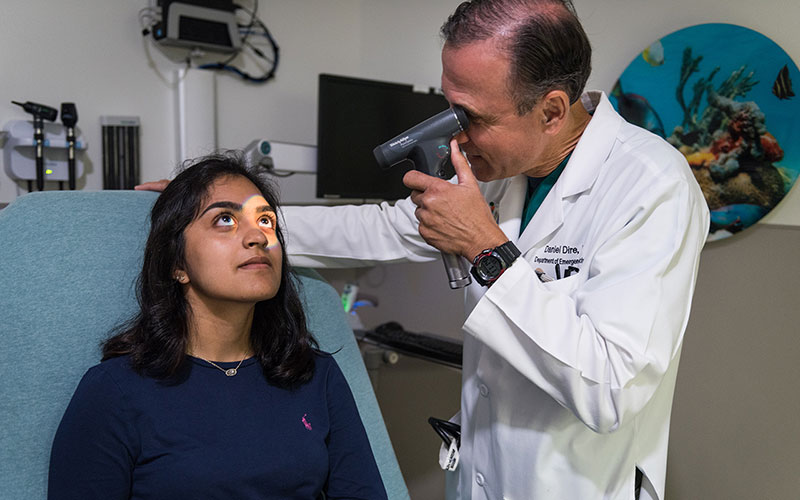According to the American Stroke Association, strokes are the 5th leading cause of death here in the U.S. killing thousands of Americans each year. Strokes can strike any one at any time and despite popular belief, do not only affect the elderly.
A stroke occurs when one or more blood vessels to the brain are either blocked or rupture causing parts of the brain to become oxygen deprived and the cells to die.
There are 3 different types of strokes:
- Ischemic
- Hemorrhagic
- TIA (transient ischemic attack)
Strokes Happen F.A.S.T.
Strokes can happen quickly, and in less than a minute can destroy 30 million neurons and 12 billion synapses in the brain which may cause major damage to the body and even death. Often, people miss the signs of stroke because they can happen suddenly or the symptoms may not be apparent at first.
According to Dr. Christopher Topel, a neurologist and assistant professor at UT Health Science Center San Antonio, it's not unusual for people to miss the signs of strokes since they can often be subtle. "It's not uncommon for a stroke to progress, and it may start with subtle symptoms but then over time it will more reveal itself definitively."The best way you can recognize stroke symptoms is by using the F.A.S.T. acronym
F-Drooping of the face
A-Weakness of the arms
S-Slurring of speech
T-Time, important to act quickly
If you experience any symptoms of a stroke, it is important to seek medical help as soon as possible since the window to treat a stroke is very limited.
What Causes Strokes?
Dr. Topel says our genetic makeup plays a big role in stroke risk. "Things that put us more at risk for stroke include high blood pressure, how we process cholesterol, and how we process sugar."
Other risk factors for stroke include:
- Diabetes
- Smoking
- Poor diet
- Obesity
- Other heart disease.
Additionally, a landmark study from UT Health San Antonio recently identified 22 new genetic factors for stroke, making it the largest genetic study of stroke to date. The identification of these new genetic markers in the study could possibly help develop new stroke drugs, identify different stroke risk factors, and even help find new treatments for dementia.
How Can You Prevent a Stroke?
You can eliminate stroke risk through lifestyle modifications including exercising and eating a healthy balanced diet. Additionally, it’s important to moderate your alcohol intake and to quit smoking.
If you have any concerns about being at risk for a stroke, talk to your healthcare provider about how you can prevent or reduce your risk of stroke.



